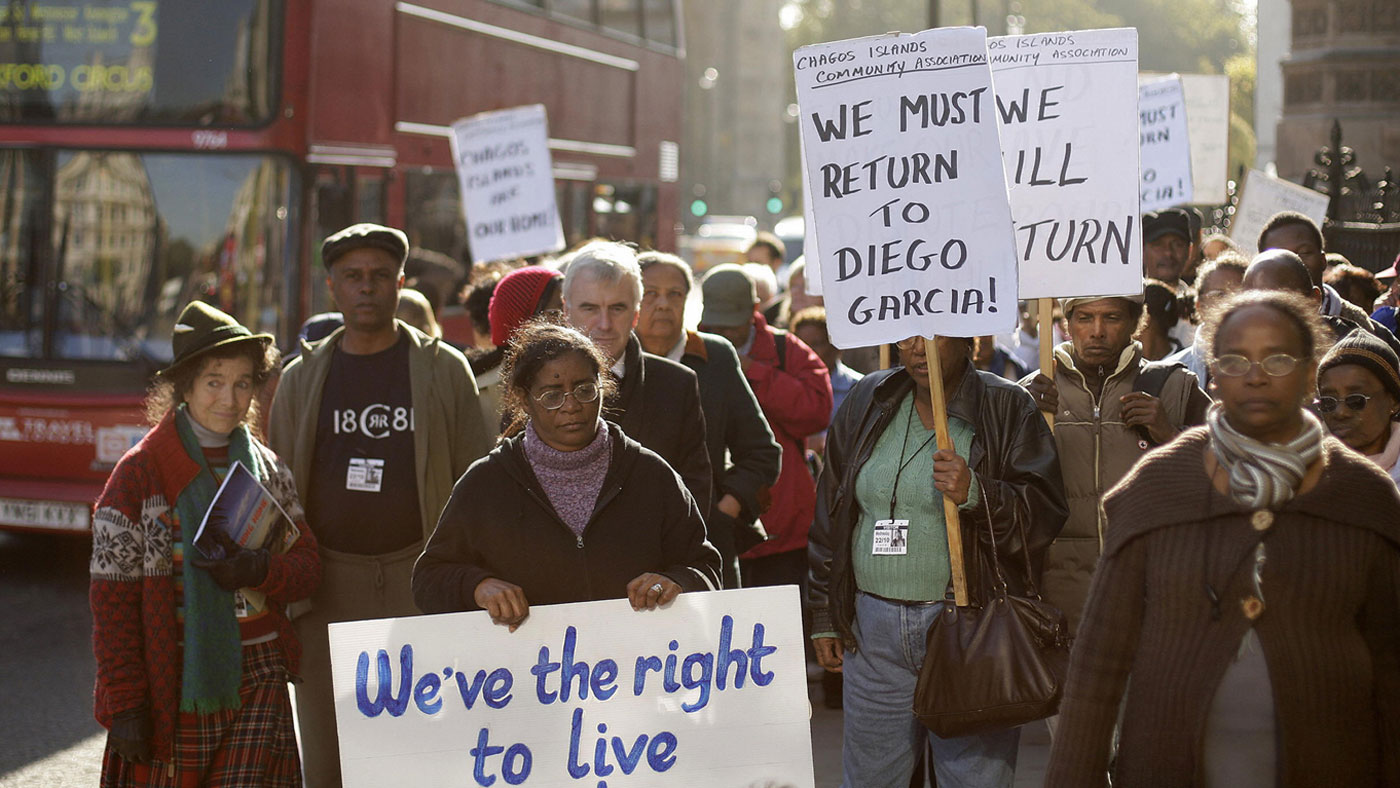Chagos Islands: Why evicted residents cannot return home
Islanders were removed from the then British colony in the 1960s to make way for US military base

A free daily email with the biggest news stories of the day – and the best features from TheWeek.com
You are now subscribed
Your newsletter sign-up was successful
Former residents of Chagos Islands, who were removed by the British government to make way for a US airbase in the 1960s and 70s, will not be allowed to return to their home in the British Indian Ocean Territory.
Foreign Office minister Baroness Anelay told MPs the government had decided against resettlement on the grounds of "feasibility, defence and security interests, and the cost to the British taxpayer".
The government also confirmed the UK would allow the US to keep its military base on the largest of the Chagos islands, Diego Garcia.
The Week
Escape your echo chamber. Get the facts behind the news, plus analysis from multiple perspectives.

Sign up for The Week's Free Newsletters
From our morning news briefing to a weekly Good News Newsletter, get the best of The Week delivered directly to your inbox.
From our morning news briefing to a weekly Good News Newsletter, get the best of The Week delivered directly to your inbox.
Ministers have "agonised over the decision for years", says The Guardian, "knowing that the UK government treated the islanders disgracefully but believing it would not be possible to take the land back from the US, given the importance of the military base to the Pentagon".
The British government split the Chagos Islands in 1965 to allow the construction of military bases for the mutual benefit of the United States and the UK, which meant forcibly evicting the island's 2,000 inhabitants.
A 1966 Foreign Office memo described the Chagossians as "some few Tarzans and Man Fridays whose origins are obscure".
The expulsions "have long been regarded as one of the most shameful parts of Britain's modern colonial history", says The Independent.
A free daily email with the biggest news stories of the day – and the best features from TheWeek.com
As many as 1,500 Chagossians, now scattered between the US, the UK and nearby Mauritius, claim the right to return to their homeland.
The Chagos Refugees Group, which is fighting for the right of the islanders to be allowed to return, said it was "disappointed" with the decision.
Campaigner Sabrina Jean told the BBC: "We will continue our fight any way we can by lobbying here in the UK and the US to see what help and support we can have."
Poet Benjamin Zephaniah, who is patron of the UK Chagos Support Association, said: "Once again, the people of the Chagos Islands are met with injustice.
"Sadly today's decision is just another familiar scenario in a long and tragic episode of British foreign policy."
-
 The ‘ravenous’ demand for Cornish minerals
The ‘ravenous’ demand for Cornish mineralsUnder the Radar Growing need for critical minerals to power tech has intensified ‘appetite’ for lithium, which could be a ‘huge boon’ for local economy
-
 Why are election experts taking Trump’s midterm threats seriously?
Why are election experts taking Trump’s midterm threats seriously?IN THE SPOTLIGHT As the president muses about polling place deployments and a centralized electoral system aimed at one-party control, lawmakers are taking this administration at its word
-
 ‘Restaurateurs have become millionaires’
‘Restaurateurs have become millionaires’Instant Opinion Opinion, comment and editorials of the day
-
 Epstein files topple law CEO, roil UK government
Epstein files topple law CEO, roil UK governmentSpeed Read Peter Mandelson, Britain’s former ambassador to the US, is caught up in the scandal
-
 Iran and US prepare to meet after skirmishes
Iran and US prepare to meet after skirmishesSpeed Read The incident comes amid heightened tensions in the Middle East
-
 Israel retrieves final hostage’s body from Gaza
Israel retrieves final hostage’s body from GazaSpeed Read The 24-year-old police officer was killed during the initial Hamas attack
-
 China’s Xi targets top general in growing purge
China’s Xi targets top general in growing purgeSpeed Read Zhang Youxia is being investigated over ‘grave violations’ of the law
-
 Panama and Canada are negotiating over a crucial copper mine
Panama and Canada are negotiating over a crucial copper mineIn the Spotlight Panama is set to make a final decision on the mine this summer
-
 Why Greenland’s natural resources are nearly impossible to mine
Why Greenland’s natural resources are nearly impossible to mineThe Explainer The country’s natural landscape makes the task extremely difficult
-
 Iran cuts internet as protests escalate
Iran cuts internet as protests escalateSpeed Reada Government buildings across the country have been set on fire
-
 US nabs ‘shadow’ tanker claimed by Russia
US nabs ‘shadow’ tanker claimed by RussiaSpeed Read The ship was one of two vessels seized by the US military